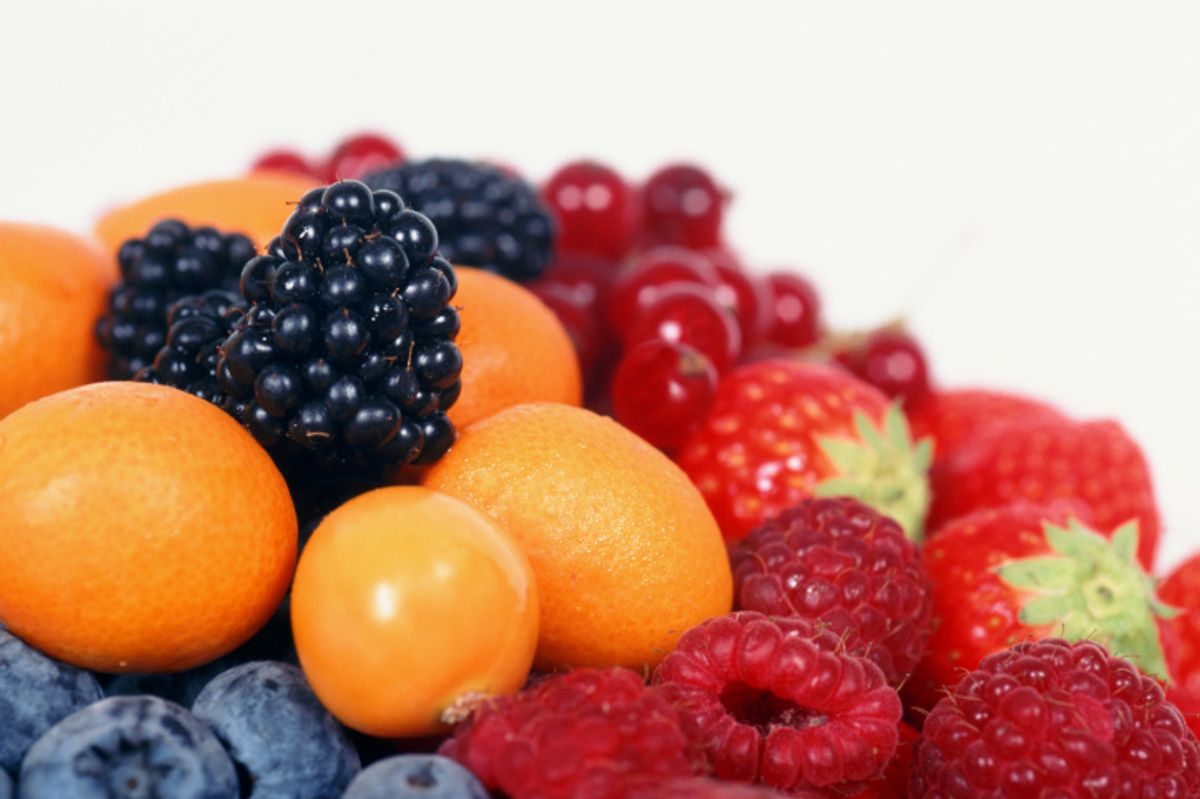Although magazine covers and "miracle" cosmetics packages all proclaim the anti-aging secrets they contain, as long as we wake up each morning, getting older is an unstoppable fact.
Perhaps a better and more attainable goal than "anti-aging" is "healthy aging"—giving our bodies and spirits what they need to reduce the risks of physical or mental decline as our 30s become our 40s, then into our 50s, 60s, and so on.
Instead of dreaming about turning back the clock, you can help keep your body strong by equipping it with the biological equivalent of fresh batteries. "Why do you have to fight against aging if you have healthy aging?" asks Barbara Shukitt-Hale, PhD, a research psychologist and behavioral neuroscientist at the USDA Human Nutrition Research Center on Aging at Tufts University in Boston. That's not just a theoretical question, no matter what your current age.
Reducing risk, one bite at a time
Oxidative stress is the cumulative, day-to-day assault our cells endure. The longer we live, the more oxidative stress our bodies experience. Dr. Shukitt-Hale and her colleagues have studied several foods that appear to repair the toll this stress takes and even protect against further damage. The foods studied also increase the number of brain cells we have and improve their functioning.
We can use such help. "As we age, our bodies are less able to deal with the oxidative stress we encounter," Dr. Shukitt-Hale says. We also become more sensitive to inflammatory responses in our central nervous systems.
While some foods have been shown to support greater health, energy and mental strength in aging bodies, the biological mechanisms that produce those results aren't fully understood yet. Many researchers believe the beneficial effects are created by the variety of nutritional components in real food, working in combination.
That means you should look in the produce aisles, not the drug aisles, to find what you need. "Very few disease processes or healthy outcomes are attained through taking vitamin supplements," says Martha Clare Morris, ScD, director of the Center of Nutrition and Aging at Rush University Medical Center, Chicago. She cites bone loss and vitamin B12 deficiency as among the few conditions that current research shows can be improved with supplements.
By contrast, when vitamins and other compounds are obtained by eating certain foods, there are big benefits. "We think eating fresh fruit or vegetables, even frozen, is better than taking supplements, because supplements don't have all the compounds," Dr. Shukitt-Hale says. In her research lab, "we've broken down foods into families of compounds, and the individual families aren't as effective" as when they function together.
Age-defying foods
You know that fruits, vegetables, whole grains and such are good for you, but some foods have been shown to be stand-outs for lowering problems linked to aging. You may want to include more of these on your shopping list:
"Brainberries": That's the nickname Dr. Shukitt-Hale and coauthor James A. Joseph, PhD, gave to blueberries and their cousins—such as blackberries, cranberries and strawberries. Berry fruits are rich in antioxidant polyphenolic compounds that protect against the age-related deterioration of cognitive and motor functions. Eating about a cup of berries a day—fresh or frozen—reduces oxidative stress (hence the term "antioxidants"), lowers inflammation and improves brain cell signaling.
Blueberries top the list of beneficial berries, but if your tastes are a bit more eclectic—arctic bramble berries, anyone?—most berry fruits carry a lot of nutritional power for their size. You may want to read the label closely: A USDA study of blueberries grown in New Jersey showed that those cultivated organically for commercial sale had higher levels of phytonutrients (beneficial compounds) than did the berries grown under conventional methods.
Red peppers, oranges, pine nuts, roasted sunflower seeds, safflower oil: Vegetables and fruits that are high in vitamin C help prevent skin appearance changes related to aging. Nuts and oils with high amounts of linoleic acid provide similar defense. Regardless of age, sun exposure or other factors, women who eat more foods that are rich in vitamin C and linoleic acid have fewer wrinkles, less skin dryness and less atrophy—the gradual thinning of skin layers.
Cocoa: It's not just for kids anymore! You may have switched to green tea for its antioxidant benefits, but cocoa is actually higher in the powerful phenolic phytochemicals that fight oxidative damage. Indeed, cocoa leads the list for antioxidant capacity—ahead of red wine, green tea and black tea. Make it with nonfat milk and you'll help strengthen your bones as well.
Spinach, kale, collards: Here's another reason to eat more vegetables: high vegetable consumption produces a slower rate of cognitive decline with age. Dr. Morris and her colleagues looked at more than 3,700 people aged 65 or older and found that those who ate about three to four daily servings of vegetables—particularly leafy greens—had much less decline in memory, recall and other mental functions than did those who ate less than one serving of veggies per day.
Walnuts: These popular nuts enabled aged rats to improve motor performance (such as walking on a plank) and thinking skills. Because of these results, researchers believe walnuts look very promising for strengthening cognition.
Fish: It's been called "brain food" for decades, but now there's evidence that fish helps keep your mental abilities strong while you age. Compared with people who ate less than one fish meal per week, those who ate fish once weekly or more often showed a slower rate of age-related cognitive decline.







